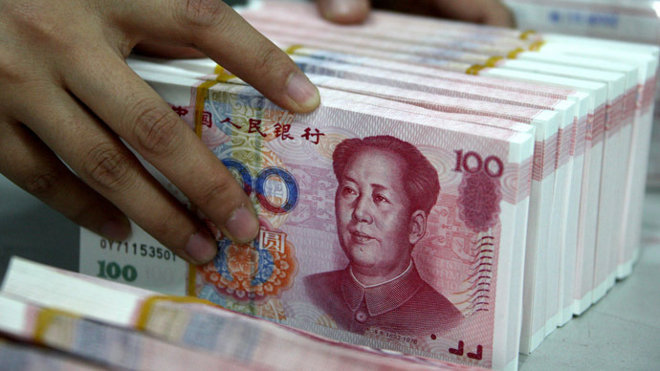The Chinese Ministry of Finance announced this week that Apple paid out 452 million yuan ($71 million) in back taxes and was slapped with a 65 million yuan fine for understating sales in 2013.
China's government-owned Xinhua reported Apple did not account for sales worth 8.8 billion yuan ($1.4 billion) in 2013, while overstating profit by 5.4 billion yuan in that same year, according to CNET. In response, China's finance ministry leveled a 65 million yuan fine on top of the 452 million yuan tax bill Apple owed.
For its part, Apple maintains the error was unintentional and resulted from a misunderstanding of Chinese tax law.
"During an audit of our 2013 operations, a difference in interpretation of a tax rule resulted in a balance due, which we paid with interest," said Apple spokesman Josh Rosenstock. "We pay all the taxes we owe wherever we do business and we will continue working closely with the Ministry of Finance."
Apple's tax strategies have come under fire in multiple jurisdictions as the company continues to see unprecedented growth that translates into billions of dollars in revenue each quarter. Of particular interest is Apple's operations in Ireland, the hub of a complicated, but legal, international revenue processing network designed to avoid high U.S. tax rates by keeping cash overseas in low tax countries. Apple has more than $190 billion in offshore monies.
The European Union is looking into what it considers Apple's exploitation of tax loopholes, while the U.S. government floats its own solutions for getting a piece of the huge Apple pie. Australia is also targeting Apple in a crackdown on tax avoidance practices.
In spite of government scrutiny, Apple's products are extremely popular among Chinese consumers, an important demographic for future growth. CEO Tim Cook in a rare mid-quarter update last month said China sector growth is strong, dispelling rumors that a struggling economy was negatively impacting sales.
 AppleInsider Staff
AppleInsider Staff







 Charles Martin
Charles Martin


 Wesley Hilliard
Wesley Hilliard
 Stephen Silver
Stephen Silver
 William Gallagher
William Gallagher

 Marko Zivkovic
Marko Zivkovic









16 Comments
Interesting how the giant, international corporations never seem to overpay their taxes. Just accidental I'm sure. Nothing deliberate. They never use multi-national loopholes either. No, they draw the line at that. "We use no complicated tax breaks," these CEOs agree, "that are not available to Pop's Bike Repair." Yes, it is amazing how companies such as Amazon, Apple and Google are always careful to pay more than their fair share of taxes. Their kindness does not end there. If they set up a server farm in some economically depressed community, they never ask for tax breaks. No, not them. Instead they promise millions for the local schools. Their generosity is most impressive. Hearts of gold and all that. That generosity then provides them with the moral high ground to lecture the rest of us about how we should sacrifice to fight this or that fashionable ill. Yes, it's traveling the world in private jets for them, but weekends a nearby state parks for us. Gotta save the world you know, one poor, much-put-upon smuck at a time. What would we do without them bearing such a heavy burden. /sarcasm
Better to ask forgiveness than to ask permission. Just the cost of doing business.
As the US Supreme Court properly stated, it is citizens duty to pay the least amount permissible under the interpretation of existing tax law. This is important, because if you are less savvy and pay more than you should, it's not a problem and you can get a refund; but were it your duty to pay the most possible given the interpretation of existing law, if you made any mistake, you'd already be in massive trouble. Thus: if government wants more taxes, they need to change the law, not bedevil those who find an interpretation of the law that allows them to pay less than the government or the public would like to see paid. In this bit of news, what's interesting is that Apple overstated profits, but underreported sales, thus owing more taxes. So likely they get a refund on income taxes, but owe more than that refund in sales taxes, which results in the penalty. If Apple had been trying to be malicious, they certainly would not have overstated profits...
Better to ask forgiveness than to ask permission. Just the cost of doing business.
Plus, if you don't get caught, you never have to ask...
That should fix their stock market problems.